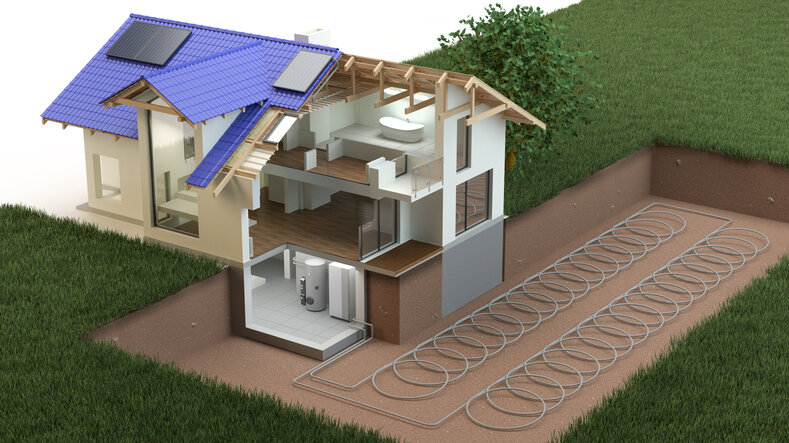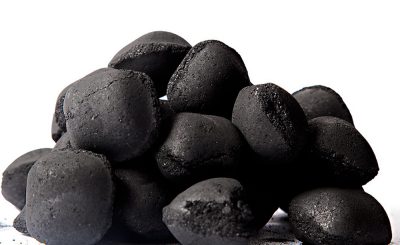The air source heat pump (ASHP) and the ground-source heat pump (GSHP) are two types of geothermal heat pumps. They both work with a closed loop system that uses an underground geothermal reservoir to keep your home warm in winter and cool in summer. Both have many advantages, but which one is better for you? Let’s take a look at each type and compare them so that you can make the decision that’s right for you.
First, let’s briefly discuss the difference between ASHP and GSHP, because they’re not exactly the same thing. The basic gist of the two systems is that ASHP works by using a refrigerant that is circulated through tubes inside your house. These tubes transfer heat from the outside environment into your home, which then transfers it back out again when it’s needed. This process makes your home warmer in winter and cooler in summer.
A GSHP works similarly to an ASHP, except that instead of circulating a refrigerant through the walls of your house, you circulate water or brine through tubes that run deep into the ground. The water will absorb heat as it travels deeper into the earth, creating heat that circulates throughout your home. It does this by exchanging heat with the surrounding rock and soil.
Both systems have many benefits. However, there are some key differences between them, which I’ll outline below. So before we jump in to our comparison of these two systems, let’s first talk about what makes them different.
A person can plan to go for the maasoojuspumba hind after doing the complete research. If the person will dedicate a good time in the selection then the results will be favorable. The main matter of the concern is to get the good results and attain the success. A person can take the genuine steps and achieve the goals. They will give fine results.

Air Source Heat Pumps VS Geothermal Heating
Before we dive into the comparisons, let’s first explain what makes ASHPs and GSHPs different from one another. As we mentioned earlier, ASHPs and GSHPs both use a closed loop system to get your home heated or cooled. But there are a few major differences between the two.
First, the way that ASHPs and GSHPs circulate heat is different: ASHPs circulate a refrigerant through the walls, while GSHPs circulate water or brine through the ground. Second, ASHPs are typically used only in areas where electricity is available, whereas GSHPs are more energy efficient than ASHPs. And third, ASHPs work well in areas with high humidity, while GSHPs are effective in dry climates.
So now that we’ve discussed the differences between ASHPs and GSHPs, let’s compare them side by side to see which one is right for you!
Air Source Heat Pump VS Geothermal Heating Comparison Chart
Geothermal Heat Pump
Pros
- Great efficiency
- Low installation cost
- Can be installed anywhere
- Works in any climate
Cons
- Requires a large amount of space
- Must drill holes in your foundation
- Requires electricity to operate
- No ductwork needed
- Requires additional insulation
- Heat exchanger must be replaced every 8 years
- Installation takes up to 20 days
- Waterproofing required
Ductless Mini Split Heat Pump
Pro
- Very low installation costs
- Does not require drilling
- Works in any climate
Cons
- Lower efficiency than traditional heat pumps
- Needs additional insulation
- Additional equipment required (such as condensers, valves, etc.)
- Requires electricity to operate
- Requires additional insulation
- Installation takes up to 20 days
- Heat exchanger must be replaced every 7-10 years
- Waterproofing required
- Cost to install
- $5,000-$8,000
- $4,500-$7,500
- $3,500-$6,000
- $2,500-$4,500
- $1,500-$2,800
- $1,200-$2,600
- $900-$1,700
- $750-$1,250
- $300-$550
- $150-$300

As you can see, there aren’t too many differences between the two systems. In fact, they’re nearly identical. If you want to go with an air source heat pump, you can save yourself quite a bit of money if you choose to install an electric version instead of a gas version. Electric versions of ASHPs tend to cost around $2,500 to $4,500 less than their gas counterparts. You won’t get much heat exchange in your house, though; electric versions don’t need to run as long as gas models do.
Now let’s talk about how these units operate. First, let’s look at the similarities. Both ASHP and GSHP heat pumps operate on the same principle: they transfer heat from the outdoors into your home. The heat is moved either by refrigerant or water traveling through tubes in your home. There are also other similarities between the two systems: both require electricity to operate, and both require additional insulation to stay comfortable during winter months.
But there are still many differences between ASHP and GSHP. Both systems can be used in any climate, but only ASHPs can be installed in humid areas such as Florida, Hawaii, and California. GSHPs cannot work in humid areas, and they’re generally more expensive to install. Also, ASHPs require no ductwork, while GSHPs do require a minimum length of ductwork to deliver the necessary heat to your home. ASHPs also require waterproofing to prevent moisture damage to your home, while GSHPs do not. Lastly, ASHPs can be installed in any part of your home, even under the floorboards, while GSHPs are limited to basements and crawlspaces.
There are many factors to consider when choosing the right geothermal system for your home. One of the most important things that you should consider is whether you plan to live in an area that is humid. If you do, an ASHP might be the right choice for you.
Which Is Best For Me?
If you decide that you’d like to install an ASHP or GSHP, you may wonder which would be best for you. Luckily, there are plenty of resources online that can help you choose the right unit for your needs. Just search “geothermal heat pump” on Google and you should find a variety of reliable websites that will help you make your decision.







